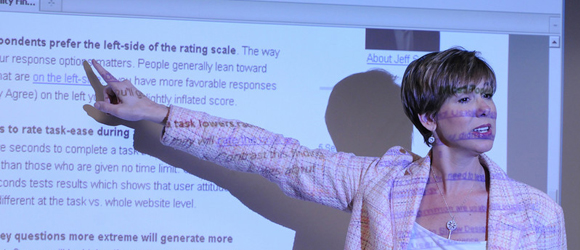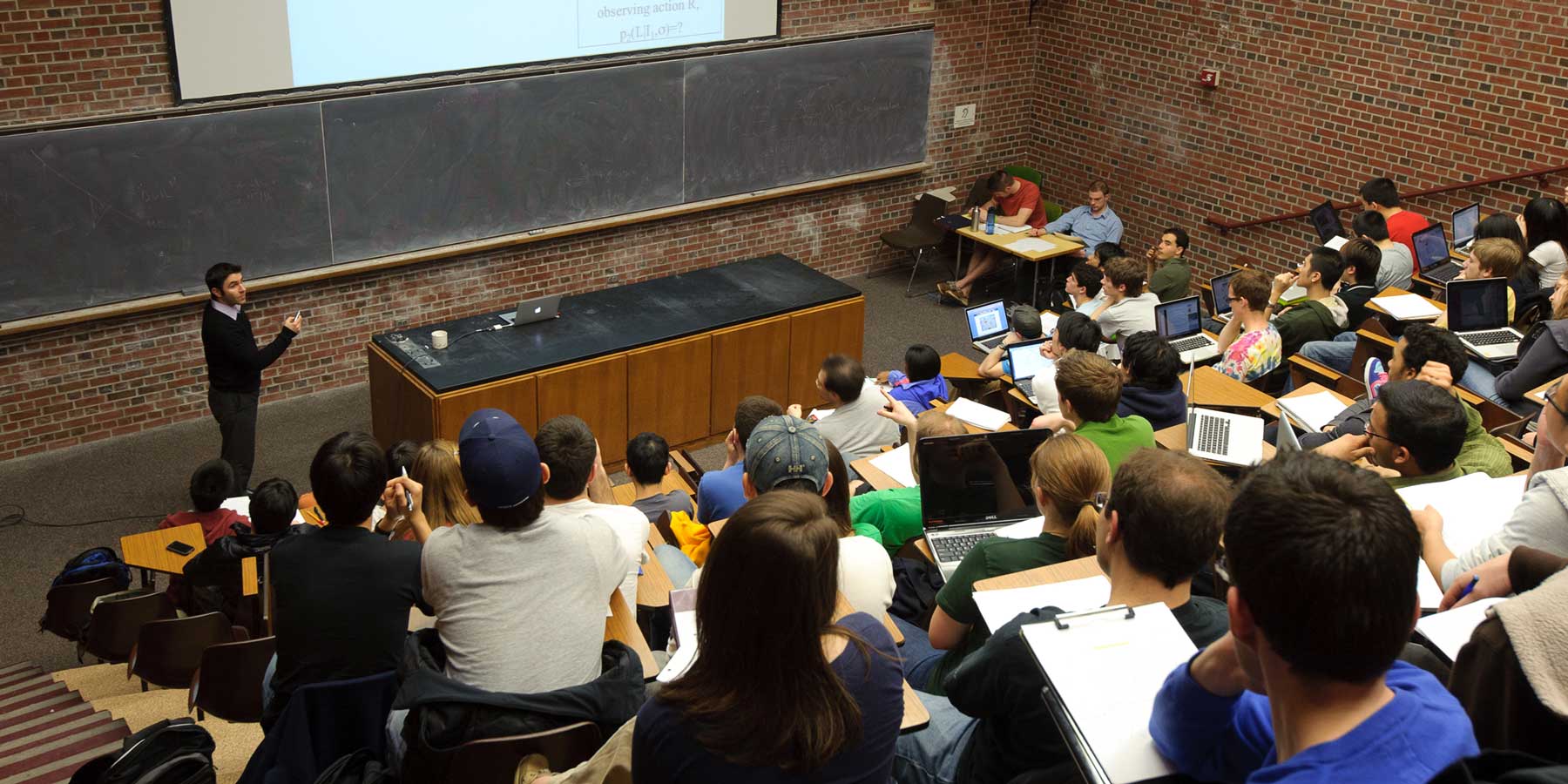Interested in utilizing Dr. Thomas Sura’s One Minute Paper in your classroom? Here is a brief instructional video detailing how to implement it. This is a great way to foster reflective thinking in your students concerning their own writing practice, and has the added benefit of allowing you instant feedback on your own teaching practices!
Tag: Writing
Based on a presentation by Melissa Broeckelman-Post, this learning module illustrates a methodology for course design that begins with the broad and gradually focuses in on how to create assignments and assessments. Each assignment is encouraged to link back to the original goals and outcomes desired for the course, so that everything remains focused and connected.
Consider using this method the next time you begin to design your class.
Mini and Mighty: How the One-Minute Paper can Transform Your Teaching
- Post author By caitlincholmes
- Post date August 27, 2015
By: Tom Sura
Tom Sura is an assistant professor of English and the undergraduate writing coordinator at West Virginia University. Tom would love to know if you use one-minute papers in your courses and what discoveries they have led to. You can find him several ways: @tom_sura on Twitter, thomas.sura@mail.wvu.edu on email, and tomsura.tumblr.com online.
One of the most powerful tools in a teacher’s toolkit—regardless of the discipline—measures just three inches by five inches. That’s right. The standard-issue index card has a remarkable power for increasing student engagement, assessing pedagogy, and providing evidence of exceptional teaching.
Inspiring Faculty Community at George Mason University
- Post author By caitlincholmes
- Post date May 7, 2015
Cameron Carter is the Communications & Marketing Specialist for the Office of Distance Education at George Mason University. She earned her MA in English (Professional Writing & Rhetoric) from Mason in 2013, and she is currently a graduate student in the Higher Education Administration certificate program. You can reach her at ccarte17@gmu.edu.
Over the past five years, Mason’s Office of Distance Education (DE) has supported a number of faculty and programs transitioning their courses from face-to-face to fully online. From partnering each faculty member with an Instructional Designer in Learning Support Services (LSS) to connecting them to the accessibility experts with the Assistive Technology Initiative, highlighting the research and copyright expertise of the University Librarians to emphasizing the resources available through the Center for Teaching and Faculty Excellence (CTFE), our role has focused largely on how best to connect Mason’s online faculty with the services and resources available across our campus.
As the DE Office, along with online education at Mason, continues to grow and take shape, we’ve asked ourselves – is this enough? This question has sparked a new effort for faculty support from the DE Office, mainly via an upsurge of faculty development opportunities. We don’t only want to support online program development and link to specific resources. We want to promote a sense of faculty community and a culture of shared knowledge and practice. Through a string of faculty development events hosted in collaboration with CTFE and LSS, we are making a push to inspire this shared place for faculty at Mason. Here’s the kicker – we aren’t focusing on online faculty alone.
Professor Expectations of Writing Assignments: A Student Perspective
- Post author By caitlincholmes
- Post date April 9, 2015
By Mikal Cardine
Mikal is a senior studying English at George Mason. She previously worked with WAC to create disciplinary writing guides for student use. To reach her, please contact wac@gmu.edu.
In the subjective world of writing, there doesn’t seem to be any rules – just lots of different guidelines as we students move from class to class. However, effective communication is what writing is all about, and professors can best teach their students this skill by practicing it themselves, especially regarding their expectations of writing assignments. Before assuming that we know what is expected of us, professors need to consider our circumstances and differences: Some of us have not been in a focused writing class in years. Some of us have not taken 302 before taking the WI course. Some of us placed out of first year writing, or have transferred to Mason and are still adjusting to new professors and new expectations. And of course, most of us have probably received terrible writing instruction at some point.



